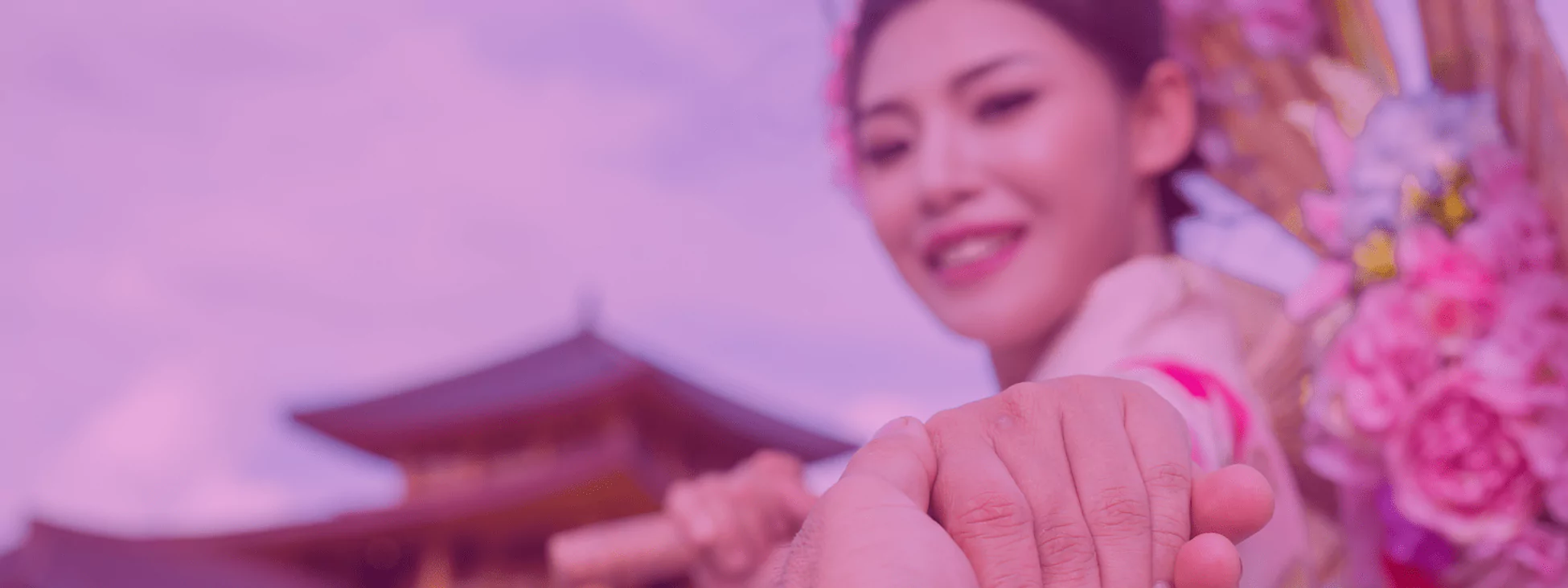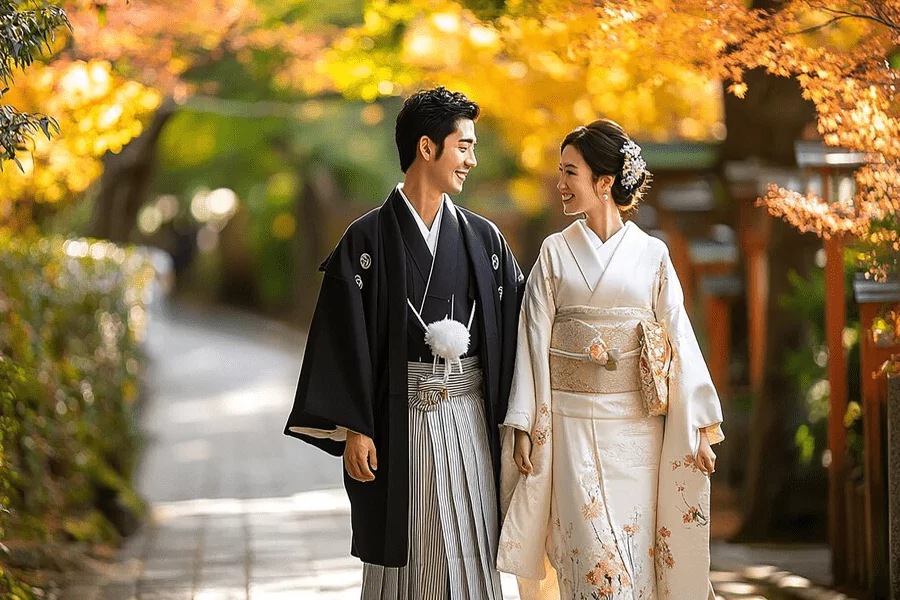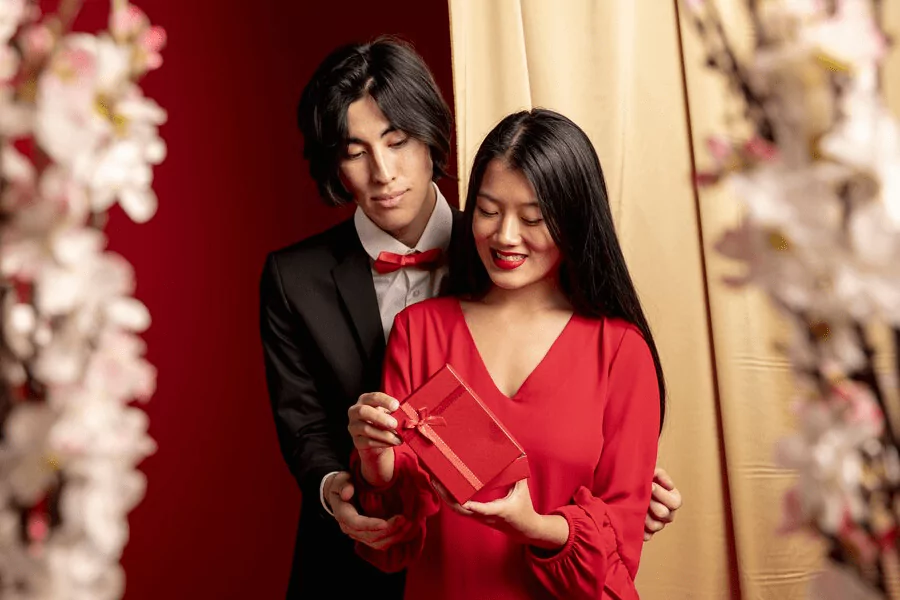
Institutional marriage is common in modern Japanese society, yet over the last couple of decades, women have changed their attitudes about it. Some Japanese women seem eager to get caught in this so-called 'marriage trap,' while others are unwilling and have started delaying it completely. This all leads up to one pretty interesting question: Why on earth are Japanese women either in an all-out rush to get married or not remotely interested?

Japan has been marked as a land of strong traditions and set cultural norms. Traditionally, marriage was considered a female's duty. This generally makes women in Japan marry young, often before the age of 30 years. Most Japanese women are considered the most beautiful at this age. Single people above a certain age were stigmatized, in terms such as "Christmas cake," referring to a woman over 25 years of age, signifying that after a certain age, a woman's worth was diminishing in society's eyes.
Read it: Japan Marriage Age Guide
This makes many Japanese women feel they ought to get married early. Sometimes, they even get married before they have the opportunity to pursue their personal goals or learn more about their professional aspirations, especially in traditional families, where every decision has a component of parental or grandparents' intervention in the marriage process.
This has been exacerbated by the increasing globalization of Japanese culture, where some women choose to defy expectations and follow personal fulfillment and independence over the traditional route of marriage.
Career development and financial independence have become increasingly important lately, and their growing importance may be one of the most vital reasons why some Japanese women refuse to marry. Women have recently been seeking increasingly more workplaces; more and more women are acquiring higher education and attaining professional performance levels. Marriage is the obstacle that stands in the way of most women's careers.
Even in Japan, changing gender roles meant a married woman might have to maintain prioritization over career development, and many were expected to become homemakers once their children arrived—this transition from professional ambitions to traditional homemaking appeals only to some women. Most women prefer to stay centered on their careers and delay marriage or decide against it.

The concept of love and marriage in modern Japan is very evolved. Traditionally, marriages were often arranged, and the emotional aspect of love was not necessarily a primary consideration when choosing a mate. However, as Japan increasingly modeled after the West, love marriages—those motivated by romantic emotions rather than by family arrangement—have gained immense popularity over time.
This has resulted in having more substantial control over the mate chosen, while for many of them, it means that they can delay marriage so long as they feel they have a particular person in mind whom they want to spend the rest of their life with. At the same time, this has further enhanced the pressure on marrying a "perfect" person; thus, some women are becoming choosier and less inclined towards the institution of marriage. The fear of settling for less or the chances of divorce has led to a cautious attitude toward marriage.
However, in attempting to apply romantic conceptions appropriately, these good-hearted women surrender to the first opportunity to seize that love match and family they have always dreamed of, which only appears later in marriage. Another reason for the rising preference of Japanese women to cross borders to seek their partners is the increasing interest in international marriages, which was hastened by matchmaking agencies such as the Transpacific Marriage Agency.
Read it: Why is Marriage Important to Society?
Today, Japan faces a demographic challenge: having the absolute minimum birth rate worldwide. This partly comes from changing attitudes toward marriage and the family. Many women tend to delay marriage and have fewer children or none. Economic factors include the increased cost of living and problems associated with balancing work and family life, among others.
For some women, marriage becomes an economic decision. They would only be easily compelled into marriage if they were financially stable. Sometimes, women feel compelled to marry men who will establish them in economics, hence rushing into it when they think of the odds against them in their lands.
Whereas economic insecurity can also force women away from marriage. These women are more interested in being single, meeting their needs, and not carrying the family burden in an unfavorable economic system. They prefer to carve out their careers and enjoy their independence.

International marriage is another popular trend in recent years. More and more Japanese women are looking for relationships and marriages with foreign men. Agencies like the Transpacific Marriage Agency provide opportunities for women to connect with their Western men, particularly from the United States.
There are many reasons why Japanese women are drawn into international marriages. Some like the idea of living abroad and experiencing a new culture, while others may feel that foreign men approach and live a marriage differently than Japanese men, holding different values and attitudes that would bring them more equality in marriage and emotional fulfillment than in traditional Japanese marriages.
Most want to marry as soon as they can because international marriages are seen as a way out of society's burden and an escape to begin life anew abroad. At the same time, this trend also unveils cross-cultural dilemmas associated with two different persons, including means of communication, cultural disparity, and family separation.
Read it: What do I need to arrange if I want to marry in Japan?
Much progress has been made in the aspect of gender equality in Japan from earlier years, but traditional roles still affect the marriage dynamics in large proportions. Traditionally, female roles are expected to encompass homemaking, and male roles are expected to revolve around maintaining the household's livelihood. Although such expectations are changing, the traditional expectations that have always been put on women in a marriage have been left partially.
Most Japanese women today want more from life than to be a wife and mother. They want independence, success at work, and personal satisfaction. However, such expectations often conflict with what is expected in marriage, and they become reluctant to get married quickly.
Conversely, women embrace marriage as it serves as a stable base for security against the ever-changing gender roles. In their zeal to actualize family goals, some marry in haste yet still feel young and attractive, in the older connotation of the term, and are motivated by the need to balance family goals with personal ambitions.
Dating and Marriage Agency, like the Transpacific Marriage Agency, has more closely assisted women of Japan in finding international marital choices for themselves. These agencies are mediators; through them, women get access to abroad husbands whom they like and who may be suitable for them. For women who want to wed, access is faster than routine dating procedures in Japan than these agencies offer.
Agencies also aid shy women who wish to avoid marrying within Japan since they can meet men closer to their values and expectations. Whether in a hurry or timid, these agencies give Japanese women more choices and control over their marital futures.
The motivations behind the eagerness of Japanese women to get married and their unwillingness to do so are as diverse and complex as a massive tangle of societal pressures, economic factors, changes in roles, and personal aspirations influence them. Japan and its ways of life continue to change, so the marriage approach will also change.
For women looking for a partner, either in Japan or elsewhere, services like the Transpacific Marriage Agency provide opportunities to discuss this new landscape confidently. While some women rush into marriage for social or personal reasons, others continue to promote their self-interests and career goals and get married late or not at all.